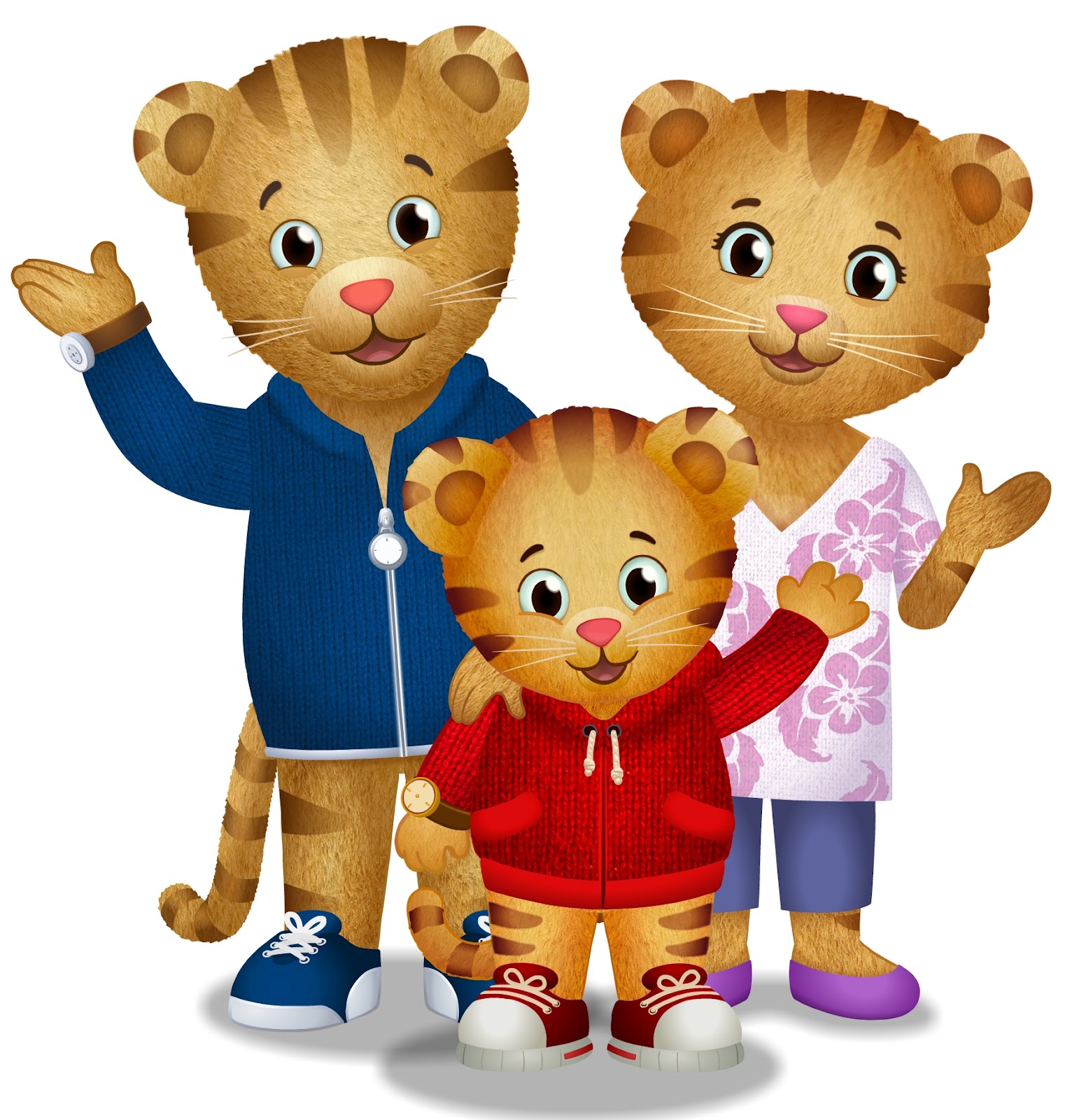Unlocking the Power of Daniel Tiger's Neighborhood

Have you ever wondered about the magic behind Daniel Tiger's Neighborhood and its impact on young viewers? This animated series, featuring the lovable Daniel Tiger, has captured the hearts of preschoolers worldwide, offering valuable life lessons wrapped in catchy tunes and engaging storylines. But what makes this show so effective, and how can parents and educators maximize its potential?
Daniel Tiger's Neighborhood, an animated program for preschoolers, follows the adventures of Daniel Tiger and his friends as they navigate the joys and challenges of growing up. Based on the legacy of Mister Rogers' Neighborhood, the show emphasizes social-emotional learning, helping children understand and manage their feelings, develop empathy, and build essential life skills. From potty training to dealing with disappointment, Daniel Tiger tackles relatable topics that resonate with young audiences.
The show's origins trace back to the iconic Mister Rogers' Neighborhood. Created by Angela Santomero, the series builds upon Fred Rogers' philosophy of using television as a tool for education and emotional growth. Daniel Tiger, a shy but kind tiger cub, embodies the spirit of Mister Rogers, offering gentle guidance and reassurance to young viewers. This connection to a trusted and beloved figure adds to the show's appeal and reinforces its positive message.
The importance of Daniel Tiger's Neighborhood lies in its ability to address crucial social-emotional needs in a developmentally appropriate way. During the formative preschool years, children are rapidly developing their emotional intelligence. The show provides a safe and engaging platform for exploring complex emotions like anger, sadness, and frustration, empowering children to recognize and cope with these feelings effectively. This early emotional literacy lays the foundation for healthy social interactions and overall well-being.
One of the main issues surrounding children's media is the potential for negative influence. However, Daniel Tiger's Neighborhood stands out as a positive force, promoting prosocial behaviors such as sharing, kindness, and empathy. The show's emphasis on these values helps children build positive relationships with their peers and navigate social situations with greater confidence. By modeling appropriate behaviors and providing clear explanations, Daniel Tiger empowers young viewers to make good choices and become caring members of their communities.
Daniel Tiger’s Neighborhood offers several benefits:
1. Emotional Literacy: The show teaches children to identify and name their feelings, providing them with the vocabulary to express themselves effectively. For example, when Daniel feels frustrated, he sings "Grown-ups Come Back," helping children understand that separation anxiety is normal and that caregivers will return.
2. Social Skills Development: The show models positive social interactions, teaching children how to share, take turns, and resolve conflicts peacefully. The "When you feel so mad, that you want to roar, take a deep breath and count to four" strategy offers a practical tool for managing anger.
3. Empathy Building: By showcasing diverse characters and experiences, the show encourages children to understand and appreciate different perspectives. When Daniel's friend Katerina experiences a loss, the show helps children understand the concept of grief and how to offer support.
Parents can use the show as a springboard for conversations about emotions and social situations. Watching the show together provides an opportunity to discuss the characters' experiences and relate them to the child's own life. Reinforcing the show's messages through real-life examples helps children internalize the lessons learned.
Advantages and Disadvantages of Daniel Tiger's Neighborhood
| Advantages | Disadvantages |
|---|---|
| Educational and Entertaining | Potential for Over-Reliance on Media |
| Promotes Social-Emotional Learning | Limited Exposure to Diverse Perspectives (though improving) |
Frequently Asked Questions:
1. What age group is Daniel Tiger's Neighborhood for? (Preschoolers)
2. Where can I watch Daniel Tiger's Neighborhood? (PBS Kids, Amazon Prime)
3. What are some of Daniel Tiger's strategies? (Deep breathing, counting to four, using your words)
4. Is Daniel Tiger related to Mister Rogers? (He's considered a continuation of the legacy)
5. What are some similar shows? (Sesame Street, Arthur)
6. How can I use Daniel Tiger's Neighborhood to teach my child? (Watch together, discuss the episodes, relate to real-life situations)
7. Are there Daniel Tiger books and toys available? (Yes, numerous resources are available)
8. How does Daniel Tiger's Neighborhood address diversity? (The show is making strides in representing diverse characters and families)
In conclusion, Daniel Tiger's Neighborhood stands as a valuable resource for parents and educators seeking to foster social-emotional growth in young children. The show's engaging storylines, catchy tunes, and relatable characters provide a powerful platform for teaching essential life skills. By leveraging the show's messages and incorporating them into everyday life, we can empower children to navigate the world with confidence, empathy, and resilience. The show's impact on a generation of young viewers is undeniable, proving that entertainment and education can go hand in hand. Embrace the power of Daniel Tiger's Neighborhood and unlock a world of social-emotional learning for the children in your life. Continue to explore resources and engage with the show's message to maximize its positive impact.
Decoding pine green the rich hue of evergreen forests
Is onlyfans still relevant in 2024
Unlocking the puzzle exploring the world of fanaticism













